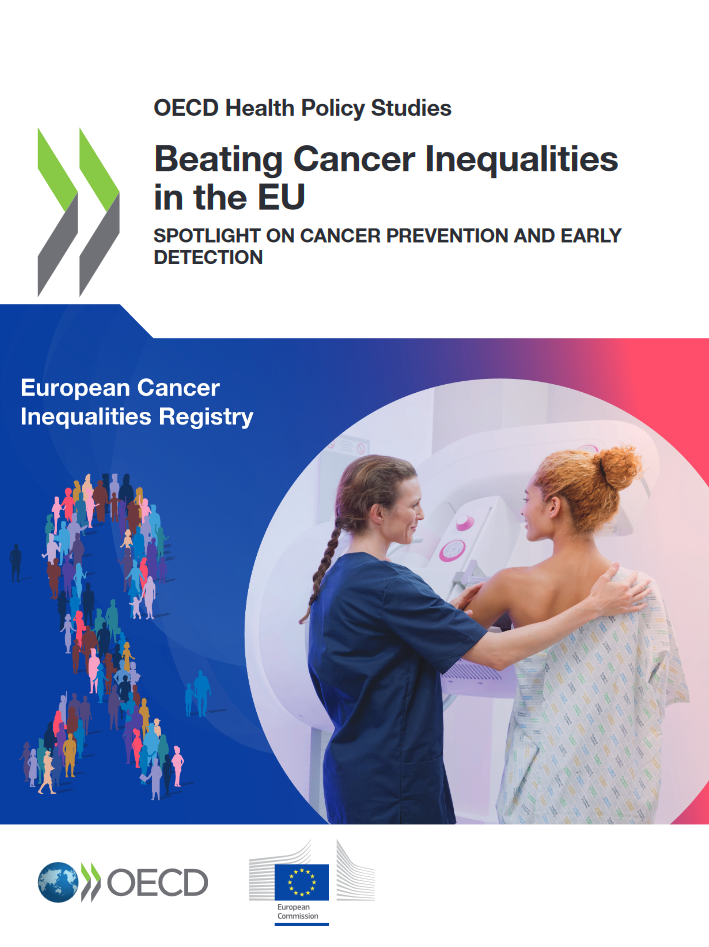Advancements and Challenges in Cancer Care: a focus on Cyprus
27th February 2024
Cancer remains one of the most pressing health challenges globally, with its prevalence increasing steadily. In Cyprus, like in many other European countries, the battle against cancer is ongoing, marked by efforts to improve detection, treatment, and quality of care. Cyprus with a population of approximately 1.2 million, faces a significant burden of cancer, with approximately 4000 new cases of cancer being diagnosed every year. According to recent statistics from the Cyprus Cancer Registry, the incidence of cancer continues to rise. Common cancers in Cyprus include breast cancer, colorectal cancer, prostate cancer, and lung cancer. Both genetic and epigenetic factors, including aging of the population and lifestyle factors, contribute to this upward trajectory.
To combat the growing cancer burden, Cyprus provides evidence-based clinical care in dedicated specialist cancer hospitals as well as oncology units in general hospitals. The Bank of Cyprus Oncology Centre (BOCOC), in Nicosia, is the principal provider of oncological services in the island with over 50.000 patients treated at the Centre since its establishment by the Bank of Cyprus as a donor and the Cyprus Government, in 1998. Both BOCOC and the German Oncology Centre (GOC) offer medical oncology, radiotherapy, and diagnostic and interventional radiology services. In addition, GOC provides general medical and surgical services including cardiology, gastroenterology, renal and others. Oncology units in general hospitals manage smaller numbers of cancer patients.
Despite advancements in cancer care, Cyprus faces several challenges in effectively managing the disease including early detection, healthcare disparities and heterogeneity in care amongst different entities, necessitating targeted interventions to ensure higher quality services and equitable access to cancer services. Although mortality rates in the country are of the lowest in EU, Cyprus was one of the two countries out of the 29 (EU+2) that had no reduction in cancer mortality rates in 2023. Additionally, the rising cost of cancer care including palliative care, poses a large financial burden on the young Cypriot General Health System, established only in 2019. Reimbursement of indications/products in certain cancer subtypes is officially as low as one third compared to other countries in the EU (OECD Health Policy Studies, Beating Cancer Inequalities, 2024). Innovative approaches may alleviate these challenges by enhancing affordability and sustainability. To this end, 2023 saw several developments focusing on cancer care improvement in Cyprus.

In December 2023, the President of the Republic of Cyprus, following years of discussions, announced the State’s decision to proceed with the foundation of the country’s National Cancer Institute assigning a starting funding amount in the Health Ministry’s budget of €1.2 million. The relevant bill is due to be prepared and expected to be submitted to the Parliament for voting within 2024. Cyprus’ National Cancer Institute will streamline cancer care strategies, through a comprehensive national cancer plan focusing on prevention, early detection, optimal treatment, palliative care, and research. It will involve and align the efforts of all stakeholders including the Health Insurance Organisation, healthcare professionals, oncology hospitals and centres, patient groups, research units and academic institutions and advocacy groups, to implement evidence-based interventions. Additionally, the National Cancer Institute will oversee the cancer registry, ensuring accurate data collection and analysis to inform healthcare policies and programs. Cancer research activity in Cyprus will be enhanced which will ultimately translate into therapeutic benefits for patients.
Another milestone reached in 2023, was the unanimous approval of the proposal for a law on the legislative establishment of the Right to Be Forgotten for citizens with a cancer history, by the Cyprus Parliament. The way was paved by an agreement reached between Europa Donna Cyprus and the Cyprus Association of Insurance Companies and applied from 1/1/2023; which allowed access to life insurance coverage to survivors who remained disease free for 10 years after the end of treatment. On a different front, progress was also documented in relation to screening programmes for cancer as the Cypriot Ministry of Health announced its revised strategy to include: the extension of the population breast screening programme for women to cover the ages 45-74 years, the promotion of the implementation of the population programme for the detection of colorectal cancer in people aged 50 -74 years and the promotion of the implementation of the population programme for prostate cancer in early 2024 as well as the inclusion of the vaccine against human papillomavirus – HPV in children aged 11-12 years.
Finally, in May 2023, Cyprus saw the inauguration of the building Nicola David Pinedo to house the Cyprus Cancer Research Institute (CCRI), a dedicated centre for basic and translational cancer research in Cyprus. CCRI was established in June 2019, comprising a coalition of the University of Cyprus (academic institution) with BOCOC (oncology hospital), and the Karaiskakio Foundation (diagnostics centre), 3 local organisations which joined forces and their complementary expertise and infrastructure to fill the current cancer research gap in Cyprus. The mission of CCRI is to promote high calibre cancer research whilst breeding the next generation of cancer research scientists in Cyprus.

Overall, while challenges exist, Cyprus has been making steady steps in 2023 to provide comprehensive cancer care services to its patients along with efforts in early detection and supportive care. Cyprus aspires to further enhance its cancer care landscape, by prioritizing patient-centred care, fostering collaboration and embracing research, ultimately improving outcomes and quality of life for individuals affected by cancer.
Anastasia Constantinidou, Coordinator for ECHOs in Cyprus (CCRI)
Anastasia Constantinidou MD(Hons) MRCP(UK) MSc(UoL) PhD(UoL)
Asst Professor in Oncology/ Haematology and Consultant Medical Oncologist
Medical School University of Cyprus and BoC Oncology Centre Nicosia Cyprus
E-mail: constantinidou.anastasia (a) ucy.ac.cy
Photo of Takahiro Sakamoto in Unsplash
